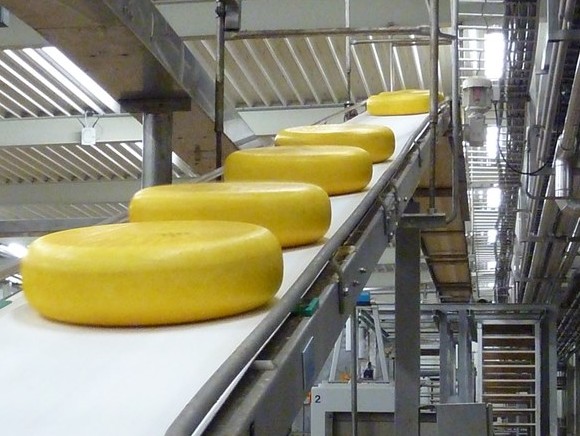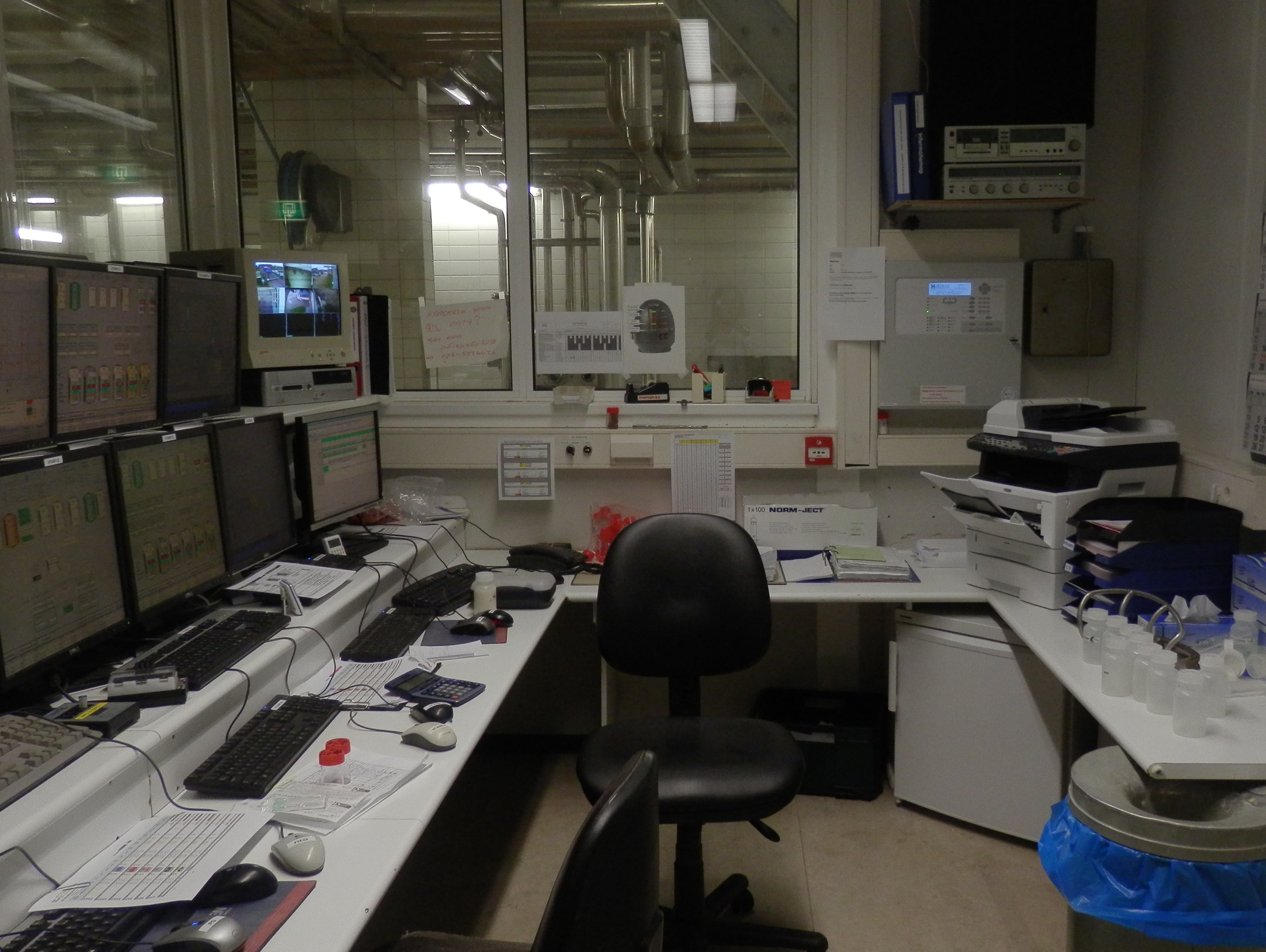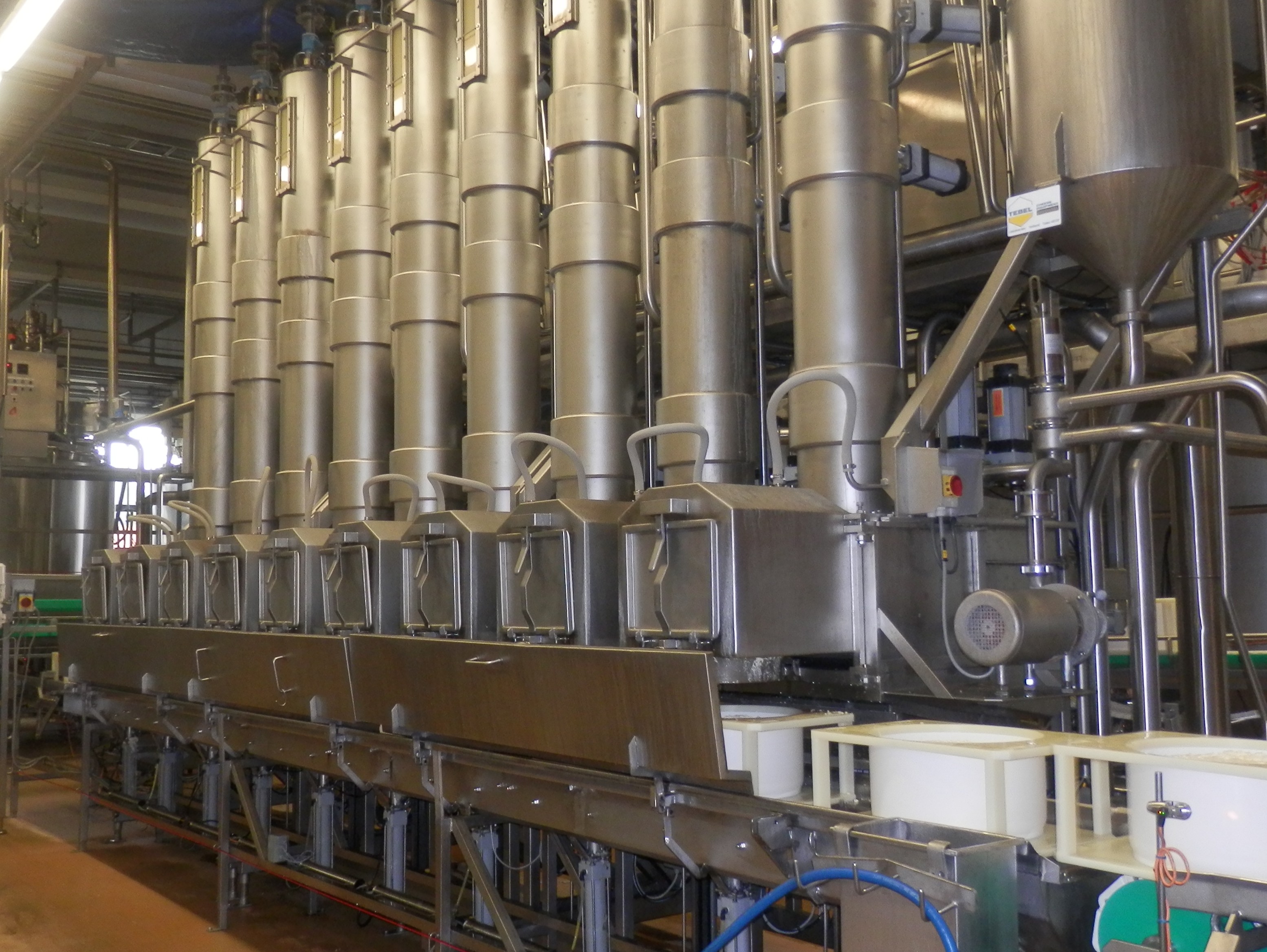
Dairy company De Graafstroom is committed to producing high-quality cheese with an optimally balanced moisture, fat, protein and salt content. Because the fundamental ingredient is a natural product, the variance in the end product must be regulated proactively. QIS (manufacturing intelligence software) is indispensable in that process.
De Graafstroom is an independent dairy company that produces Gouda cheese in a region known as the ‘Green Heart’ of the Netherlands – a rural area located between Amsterdam, The Hague, Utrecht and Rotterdam. The factory was established in 2009 when the Dutch Competition Authority ruled that FrieslandCampina should sell the Bleskensgraaf site. De Graafstroom is now part of the DeltaMilk cooperative. Henk van Bochove is CEO.
The cheese-making process begins with the skimming and pasteurisation of the milk, followed by the addition of rennet and a starter culture. The resulting curd is then stirred and cut. This releases whey: a by-product with a high value as an ingredient in baby food. The curd is placed into a cheese vat and pressed into moulds to create the perfect shape. The cheeses are then left in a brine bath for the relevant length of time. This depends on what type of cheese is being made and also on the desired characteristics of the end product. After the brine bath, a protective layer is added to each cheese to reduce moisture loss and extend shelf life. The cheeses are then allowed to mature in the storage facility.
Everything under control!
De Graafstroom is committed to producing cheeses with an optimally balanced moisture, fat, protein and salt content. The variance in the end product must therefore be regulated proactively. De Graafstroom uses QIS (manufacturing intelligence software) as a company-wide resource to prevent product inferiority. Right from the very first step in the production process, information is continually gathered and analysed in order to actively reduce the variances in subsequent stages of production.
Milk is a natural product; its characteristics vary with the seasons. In order to ensure a consistently high-quality end product, the variances in the characteristics of the raw milk must be known from the very start of the production process. Firstly, QIS helps operators to manage the production process. The data enables them to take immediate action in response to the natural variance and to react to other causes of variance inherent to any manufacturing process. Secondly, the large volumes of data in QIS are also tremendously valuable after the production process. The analysis options provide the basis for further improvements in quality and productivity (Overall Equipment Effectiveness/OEE), and data relating to De Graafstroom’s CSR objective is also visible. This approach means that QIS supports the efficient manufacture of cheese with a reliable and consistently high quality. Hence, it significantly reduces the impact of downtime, waste and CO2 emissions.
De Graafstroom has been using QIS since 2004/2005, when the system was implemented in three Campina facilities with the aim of gathering data about – and to improve – quality. The objective at that time was the automated, real-time collection and visualisation of quality-related data in the cheese facility, in the right context – both in order to minimise the administrative burden on the operator and to aid analysis at a later date – and with a minimum of manual data-entry effort.
After being sold by FrieslandCampina, De Graafstroom stepped up its commitment to quality by fully integrating its ERP, MES and QIS information systems. QIS plays a business-critical role in data collection, the supply of relevant real-time information for quality control purposes, and continuous improvement. All logistically relevant information is gathered from the production process in QIS and subsequently forwarded by QIS ProcessLink to Infor M3. ProcessLink contains a library of standardised interfaces.

The company’s Delta Project, part of which included the QIS re-implementation project, was challenging. In order to achieve the objective (on-time implementation of ERP/QIS within budget and without customisation), it was necessary to correctly align ICT, the MES and the ERP interfaces. Thanks to the dedication and united approach of both De Graafstroom and its implementation partners QISoft and Alfa-Beta-Solutions, the team completed the on-time delivery of a smooth-running business-critical environment with a very high uptime. Nowadays, virtually all production processes are managed in QIS, allowing an integrated data flow between the MES, QIS and Infor M3. The result: efficiency and control. All the parties involved succeeded in demonstrably improving the quality and efficiency of production.

Greater insight into the manufacturing process also leads to new questions, but De Graafstroom is becoming increasingly adept at using QIS to answer them. The possibilities of QIS itself are being further extended too; there are a number of new applications on the horizon, including more detailed ERP traceability, more checks on the milk received and broader support for CSR.
www.degraafstroom.com
www.alfa-beta-solutions.nl
www.qisoft.com
Source: © De Graafstroom